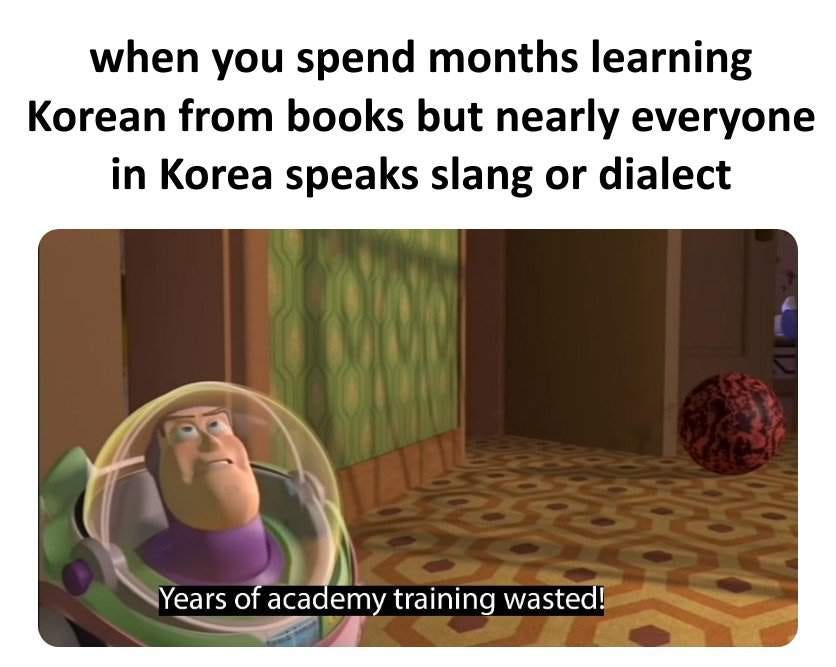The "Pillars" of Second Language Acquisition
Are you ensuring you are a well rounded language learner?
Welcome, aspiring polyglot! One of the more difficult aspects of second language acquisition is working to be well rounded in your new language. Most people end up working far more on their listening skills than anything else and falling into the "well, I can understand you, but I can't speak the language" camp which can be endlessly frustrating.
There are some things that are more important than others. Some skills you can develop more passively and some require a bit more attention if you want to perfect them. In this article we will discuss them all and how you can set yourself up for success as a well rounded language learner.
Things you need to do to level up your language skills
There are roughly 5 pillars to second language acquisition. In no particular order these are, reading, writing, speaking, listening, and translating. Mastering spoken language and written language is just as important as learning new vocabulary words by practicing your listening skills.
That said, it is far easier to get listening stimulus than it is to find adequate opportunities to speak, especially with native speakers. If you want to break through the language barrier, you need to get as much of each category into your language learning routine as possible.
Reading
Starting with books is one of the more difficult options, but it is also one of the most effective methods to get large amounts of new vocabulary words and grammar structures into the rotation quickly. Language output is going to be important down the line, but when you are getting started and throughout the first few months comprehensible input will matter. Taking on books in a foreign language is good in that you will be able to level up steadily and consistently. Start small, but always be looking for that incremental progression.
Whether you start with philosophy or comic books, reading is always going to be beneficial. Exposure is absolutely vital and the more time you spend around your target language the easier it will be for you to acquire. Part of the learning process is a subconscious process and when you spend time seeing new words every day you will notice that there are times when new words you were struggling with suddenly make sense. Grammar concepts you found impossible to comprehend are easy to make sense of out of nowhere.
Reading will also increase your cultural competence. When you learn a new language you will inevitably learn about a new culture. The more you read works that were written in the language you are learning the more you will understand the people with whom you will be speaking this new language. Being able to speak about books and authors from other countries is a powerful thing when you come face to face with a native speaker. Any topics of conversation you would broach in your first language are perfect for your second language.
Writing
We harp on the necessity of writing quite often around here. The reason for this is simple: it is one of the two ways you can practice thinking in your target language. It can be difficult, but thinking in other languages is how you reach the point of native-like fluency.
Writing and speaking are the only way to train this skill with any level of measurability. Writing consistently will have a profound effect on your short term memory and your long term memory, but more importantly it will give you a little breathing room when it comes time to working out real time conversations.
More importantly, you will have a written record of your progress. Sometimes it can be difficult to understand how far you have come if you are not consistently looking back to see what you used to do, how are you ever going to realize how many mistakes you have overcome and how many concepts you have mastered? Not only that, but writing things down helps commit them to your working memory so that when you are speaking you are able to recall things better.
Speaking
Speaking is one of the areas where you are going to have the most trouble finding acceptable forms of comprehensible input. You will need to fight for opportunities to speak in ways you do not need to think about finding opportunities for listening and reading.
While foreign languages may always be around you, most of the time your interactions with them will be passive. When it comes to speaking, though, that is not an option. If you want to be able to speak a new language you need to be speaking that new language as often as possible.
I recently had a conversation where someone contended that someone who can understand a language, but not speak it, is fluent. In my opinion, this could not be any further from the truth. Perhaps you can claim you know the language, but fluency, generally speaking, means the ability to read, write, understand spoken language, AND speak.
Those who are stuck in the silent period of second language acquisition, know all too much how horrible it can feel to be unable to adequately express yourself. If you think you are stuck in the silent period, check out this article:
Understanding the Silent Period of Second Language Acquisition
Welcome, aspiring polyglot! With many in the community beginning new languages, myself included, there is something that needs to be discussed. The silent period of language acquisition. Something everyone is bound to experience, even those who are living abroad and studying in complete immersion.
As far as best practices go, the best thing you can do is start speaking as early in your language learning process as possible. Irrespective of how many mistakes you make, the act of speaking will help you improve. Mainstream classrooms miss this often and it causes indefinite delays in people's ability to speak their target language effectively. You are going to make mistakes, so make mistakes and get better. The only way out is through.
Listening
When it comes to listening, you will have almost endless opportunities. That is why I do not think it is worth your time and effort to seek out listening input so much. Language output is vital for successful second language acquisition and input is far easier to come by at the end of the day. Not only that, but you can get tons of passive input in any time you are doing something that does not require active listening.
Add audiobooks into your daily commute, throw on music when you are cooking or cleaning, listen to podcasts in your second language instead of your first language. All of these things are easy ways to get endless hours of audio input into your life.
Every time you hear and recognize new words you can count that as a victory. Pay attention to the sentence frames and try to create sentences of your own. In essence your goal is to build something as closely related to an immersion environment as physically possible without having to leave your home or routine.
There are so many people who start the learning process and eventually hit a plateau only to give up. Those same people end up repeating the phrase, "I can understand what you are saying, but I can't speak or respond to you." which can be incredibly frustrating.
Listening is absolutely vital, but you will have far more opportunities to listen than you will have to speak. Even after you are fluent, you will likely spend more time listening than you do speaking, so keep that in mind as you plan out your progression.
Translation
This last step is something that many people likely would not consider a true pillar of second language acquisition, but I believe it is one of the most underrated approaches to successful language acquisition. You are going to be translating the sentences in your head from your first language to your second language almost every day that you are practicing. If you are going to do it anyway, you might as well put some effort into it so that things get easier.
Not only will it benefit you in that things will get smoother and more fluid the more often you practice, but you will also be inundated with new words that you can add to your vocabulary repertoire. This process will involve writing, at least if you want to commit these new vocabulary words to your memory. Perhaps that is the reason people are so hesitant to take it on as a daily activity. However, because it is difficult you will make more progress doing that than most other things you can do when learning a new language.
Conclusion
The pillars of second language acquisition may vary depending on who you ask, but in my opinion these are the main areas you need to be targeting as you seek to develop your language skills. Breaking down the language barrier is going to require multiple forms of stimulus and this is especially true for those who do not have access to native speakers.
Learning a foreign language is going to require mastery of both written language and the spoken word; and at the end of the day translation is just a tool. Second language acquisition is complex and multifaceted. It will involve writing and speaking and listening and reading and, ideally, translation. Every language skill you add to your tool belt is one you can lean on when you come face to face with native speakers in real life situations. Do everything you can to avoid limiting yourself.
As we discuss often around here, creating is vital in second language acquisition. Speaking and practicing with written language will help you in accelerating and enhancing your language learning process, so start having conversations as early on as possible. It will be difficult, but you can do difficult things and be great. So go do some difficult things and become great.
Eager for more Second Language Strategies?
For more content find me on Twitter or Instagram. If you are struggling to get speaking in your target language, get up to 55% off a Babbel subscription using this link. I look forward to seeing everyone’s progress in the months and years to come. Be sure to check out the YouTube channel as well!
Learning Spanish? We have begun aggregating resources in you Spanish Resource Newsletter!
Don't forget to pick up your very own French Language Logbook or Spanish Language Logbook!










